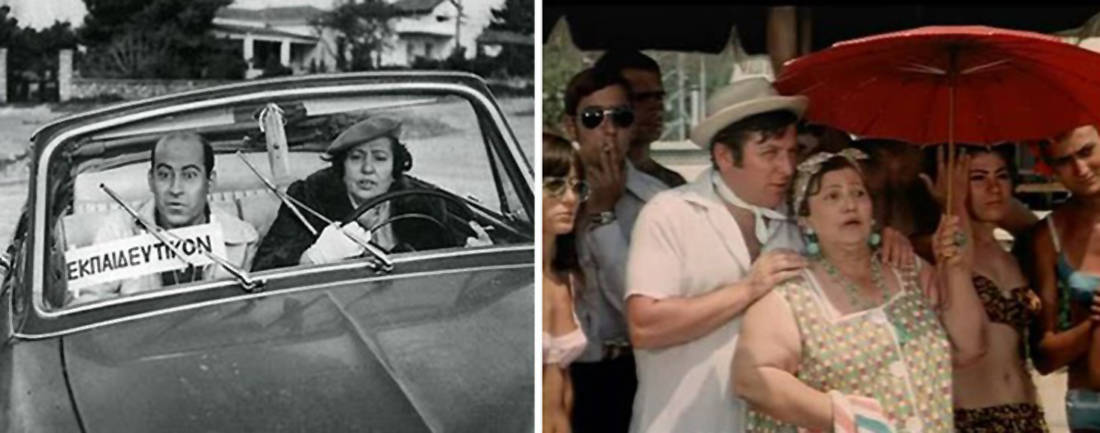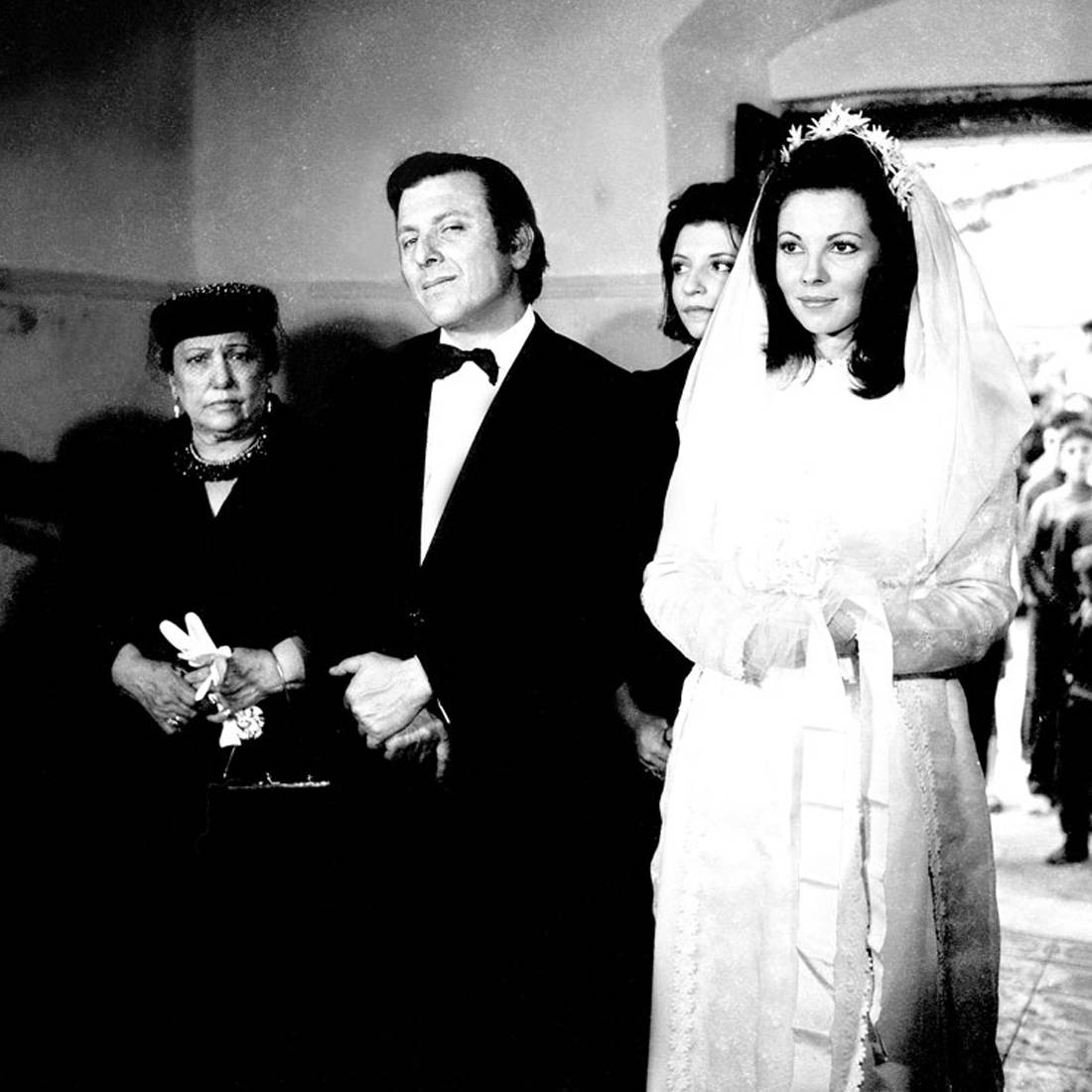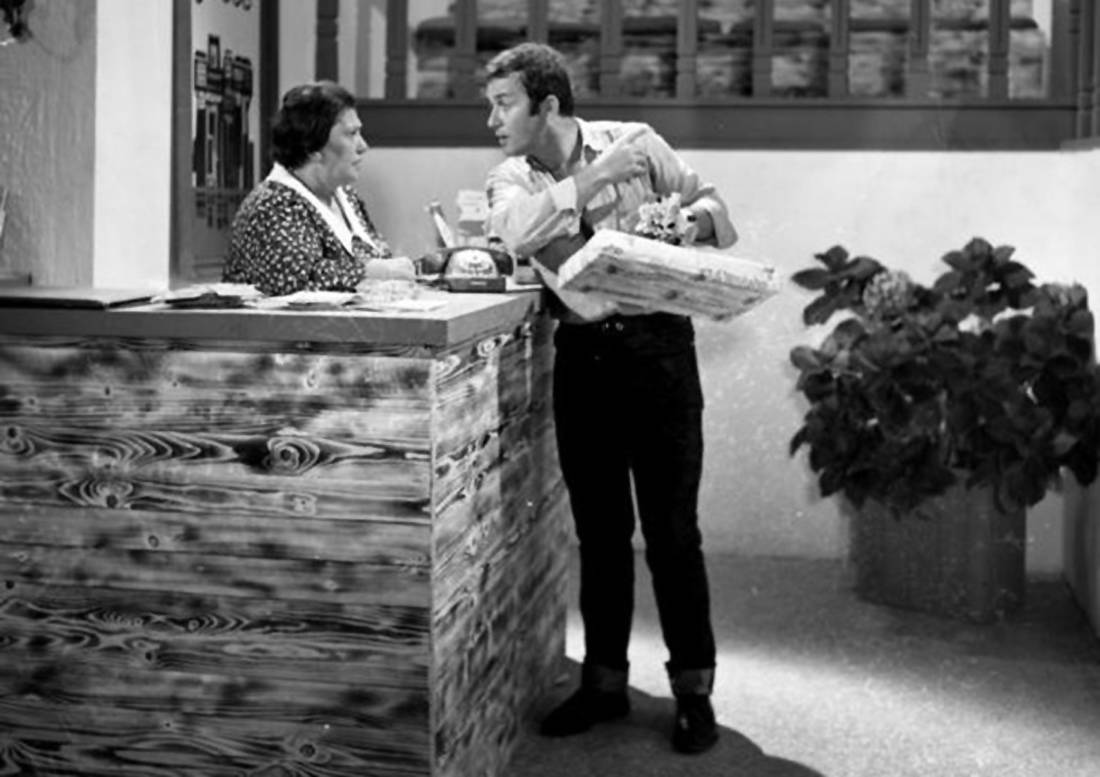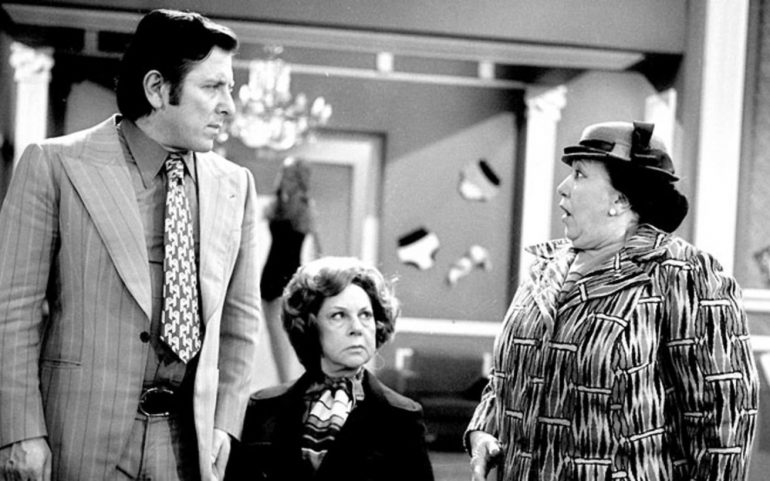With Eleni Zafiriou are the two actors who were identified as much as others with the role of the mother, in Greek cinema. Eleni Zafeiriou was mainly the protagonist in dramatic stories, when the poor mother who struggles to raise her children, when happy, when a widow, surely in everyone's mind was his loving mother Greek cinema.
Mary Metaxa, on the other hand, was the awe-inspiring opponent, but mainly in comic roles. She was the teasing mother, the Politissa, the exuberant, the evil mother-in-law who put her nose everywhere. She was also the overprotective mother, especially him Costa Voutsa, with whom they formed an unbeatable and extremely enjoyable duo.
Her name may not say anything at once, but there is no one who will not recognize her as soon as she sees her. Besides, with her exuberant presence and her inexhaustible talent, she also managed to put her little stone in the "golden age" of Greek cinema. However, she managed to become the favorite of the public (and let it seem like a contradiction that not everyone knows her name) and to identify with her many Greek manades, of that time.
And to imagine that Mary Metaxa did not have children, but never married.
The ballerina who conquered the cinema at an old age

In 1910 or 1912 (the date of her birth is not exact) in Northern Thrace (Eastern Romulia at that time) Mary Metaxa saw the first light. She was born into a bourgeois family, which offered everything to her daughter, as well as the upbringing and education that suited their class. And among them was the ballet, which the little one loved with the first contact.
So, fatally she wanted as a child to become a ballerina one day. But also to deal with the spectacle in general. And she may have grown in feathers, but she was hardworking and focused on her goal. She was fighting for what she was conquering and they did not expect it to come to her alone. But he also had patience. And this patience proved to be wise, since for her first contact with the big cloth, she had to wait for many years.
Until then, she was involved in ballet, dancing as a ballerina in operettas. In fact, she was so talented that she became known in the musical theater of the time. And through this contact, the theater came into her life.
Mary Metaxa got on the board and her talent was soon recognized. The collaborations followed one another, while he participated mainly in comedy performances. And while her success in the theater was being built, there was no response from the cinema. The shock to the actress came many years later and while she was old, as had happened with Georgia Vassiliadou.
But if the talent can not be "smelled" easily, it is impossible not to recognize it. And from her first appearance on the big screen, everyone understood that they had left an "diamond" unexploited. In 1958, o Philopoimen Finos offered her her first contract for the movie "Our Lady the Mom". And she feels like the desperate village girl who brings her baby to be done well by mom Georgia Vassiliadou.

That's it. Until then - unknown why - hermetically sealed doors of the cinema were opened for Mary Metaxa to cross the threshold. And as if they wanted to "reward" her who had not seen her before, the proposals for films were "raining". The great recognition, however, comes a few years later, in the mid-60s, when Giannis Dalianidis wants her close to him, giving her a series of roles, which establish her as an absolutely comic actress. But above all, they establish her as the "mother" of Greek cinema.
In "Wedding Night" in 1967, she plays the Constantinople mother of Kostas Voutsas and it is one of her best cinematic moments. But also as Polyxeni Kopeoglou in the movie "The Little Man" she manages to remain as one of the adored movie characters. With Kostas Voutsas, they are one of the favorite twins of the sail in the roles of "mother and son".
In fact, they were so compatible with each other that many then believed that he was in fact a mother and a son. And the two may not be related by blood, but they were very dear and their cinematic relationship had passed into life.
The lonely death of the "mother"
She may have remained in everyone's consciousness as the "Greek mother" of cinema, but Mary Metaxa never had children. He did not even get married. Those who knew her intimately had something to say about how kind and good she was. He helped those in need. But when he retired from active action, it was not long before he was forgotten. As is the case, in many cases.
The health problems that plagued her, made her decide to retire. As long as she was away, everyone had forgotten her. Only her "son" Costas Voutsas was there to help her, whenever he could.

In January 1987, the ill smoker Mary Metaxa was rushed to Sismanogleio with severe respiratory problems, as she was suffering from chronic obstructive pulmonary disease. Next to her during the days she was hospitalized was her "son", Costas Voutsas. Her medical expenses and her funeral were covered at the expense of the Mutual Aid Fund of the Greek Actors Association, since none of her relatives showed up. No one knows for sure if anyone was left alive then or if they had no relationship.
The "mother"'s escape was lonely. The last "goodbye" was not only lonely but also outrageous. And Artemis Matsas had said it all then, in one sentence, at the funeral he delivered. "You left wrapped in loneliness. "But death in our time requires public relations." Mary Metaxa does not seem to have been in public relations. Why else could you explain that very few of her colleagues had gone to her funeral?
A handful of people accompanied her to her last home. A lonely finale that did not fit a "mom".
